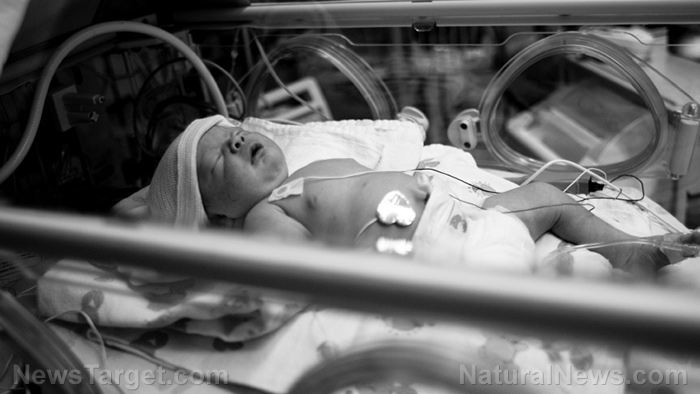Research shows that steroids, which are hard on the liver, do not help children with liver disease
12/03/2018 / By Frances Bloomfield

The researchers behind a 2014 study found that steroids had no effect on infants with biliary atresia, a childhood liver disease. According to the press release from Cincinnati Children’s Hospital Medical Center, steroids could, in truth, possibly increase the risk of serious adverse events.
To come to this conclusion, the researchers observed 140 infants with an average age of 2.3 months from over 14 sites. After undergoing surgery, 70 of the children were treated with steroids, while the remaining half were given a placebo. Of the children who had received steroids, 41 out of 70 or 58.6 percent had shown signs of improved bile drainage. Conversely, only 34 out of 70 or 48.6 percent of the children from the placebo group showed similar improvements. (Related: The “silk worm” enzyme works better at treating pain than steroids.)
The researchers further noted that both groups of children had experienced serious complications at near-identical rates: 81.4 percent or nearly 57 of the patients from steroid group, and 80 percent or 56 infants from the placebo group. However, the children who had been treated with steroids underwent serious adverse events much earlier than those who weren’t. These serious adverse events ranged from poor wound healing to gastrointestinal bleeding to hyperglycemia or abnormally high blood sugar levels.
Moreover, only 58.7 percent or 41 of the placebo group patients survived to 24 months old. By contrast, 59.4 percent or 42 children from the placebo group had reached this milestone.
“The results from this clinical trial differ from previous reports of a benefit from steroid therapy on bile drainage or survival in biliary atresia,” said Dr. Jorge Bezerra, lead study investigator and physician at Cincinnati Children’s Gastroenterology, Hepatology and Nutrition division.

Bezerra added: “Although we cannot exclude some small potential benefit from steroid treatment, we observed no statistical differences in two-year survival between patients receiving steroid treatment after surgery and those receiving placebo. Children receiving steroids during the study also developed serious adverse events more quickly, raising a potential increase in risks associated with steroid therapy.”
The leading cause of pediatric liver transplants, biliary atresia, is caused by the inflammation and accumulation of connective tissues in the bile ducts. These clumps obstruct and prevent bile ducts from draining properly, leading to cirrhosis or damage and scarring of the liver. If left untreated, biliary atresia can eventually progress into liver failure.
This condition is usually treated through surgery, which involves removing the affected bile ducts and gallbladder then connecting an intestinal loop into the liver. Known as hepatoportoenterostomy or Kasai portoenterostomy, this procedure is best performed before the patients hit 60 days of age in order to boost their chances of achieving bile drainage. Some doctors have suggested that the use of steroids post-surgery could assist in bile drainage and impede the growth of additional connective tissues. This study—conducted from 2005 to 2011, with a follow-up concluding in January 2013—was developed to test that theory.
See LiverDamage.news for more coverage of solutions for liver damage.
Sources include:
Submit a correction >>
Tagged Under:
biliary atresia, children's health, dangerous drugs, liver health, pediatric liver disease, side effects, steroid therapy, Steroids
This article may contain statements that reflect the opinion of the author





















